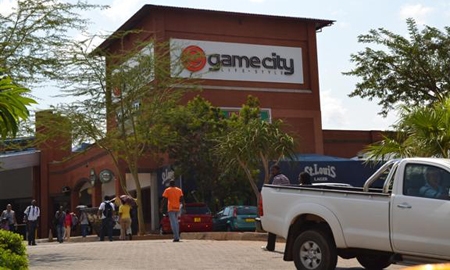Turnstar Holdings Limited, which engages in the development, rental and sale of retail and commercial properties in Botswana, has entered the Tanzanian property market with the acquisition of Mlimani City Property Development in Dar es Salaam. The move represents another step for Turnstar towards becoming a major pan-African real estate company.
Turnstar Holdings has quite a diversified portfolio: 21 per cent commercial, 76 per cent retail and three per cent residential. The company's strategy is, through portfolio growth and diversification, to become a leading company in the property market not only in Botswana but also internationally.
Managing director of Turnstar, Mr Jakes Motlhabane, assesses the current opportunities and challenges facing the real estate sector in Botswana.
“On the residential side, we are still at a point where I personally think we are in a sellers’ market. Properties are overpriced, and people are demanding residential properties. The opportunities for people to acquire properties are there, but the cost of construction is high and properties are overpriced,” said Mr Motlhabane.
“Residential homes are still being used for office space. That also creates expectations. Companies pay higher rents, and that is distorting the market. I think there will be a correction. We are expecting about 200,000 sqm of retail space to come on to the market and about 150,000 sqm of office space. I have noticed that no new businesses are coming into the market, so if you create more office space, there will be an issue of oversupply in the next 18 to 36 months.
“Oversupply is more likely to bring stagnation or a reduction in market rents. But the good thing is that Botswana is a developing country, so we will continue to have those kinds of developments. But whether there is undersupply or oversupply, it is a free market and economy, and it will correct itself. There will definitely be casualties due to this correction. But as a company, Turnstar has to position itself to take advantage of that correction.”
Turnstar aims to become the leader in the country through diversification and portfolio growth and also has its eye on international achievements.
Mr Motlhabane explains: “In terms of our aspirations in Botswana, we would like to be the leader in the market. We have got a strong spread in retail and we have operations in Francistown and Gaborone, and we hope to expand to other parts of the country. We think there are still opportunities for Turnstar to expand in the sector and there are opportunities for the industry to grow as a whole.
“I think the key factor that the government is working on is diversifying developments away from Gaborone. Gaborone supposedly has the largest population but the government is trying to develop other towns. I think there will be opportunities for us to participate in that diversification.”
As regards attracting international investors, Turnstar aims to diversify their shareholder base and get more international players in the market.
“The majority of local investors are pension funds and long-term investors, but we need a mixture of long-term, short-term and even speculative investors. When speculative investors have to sell, they sell at any price sometimes,” said Mr Motlhabane.

0 COMMENTS